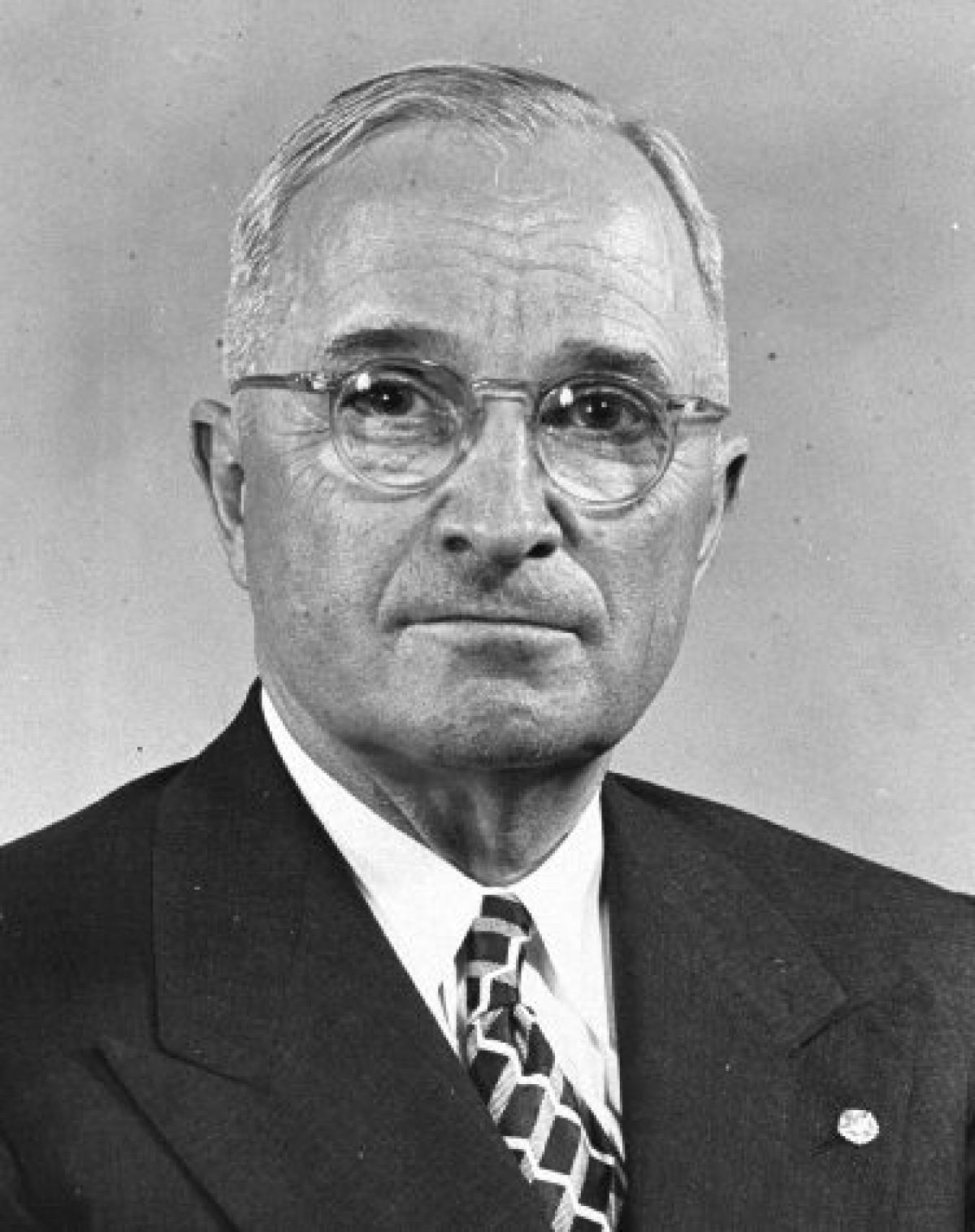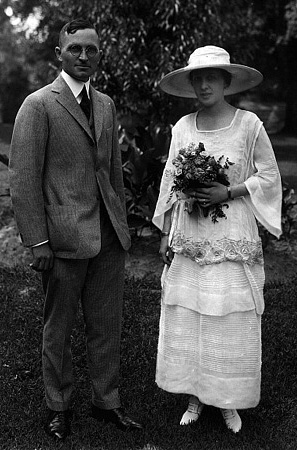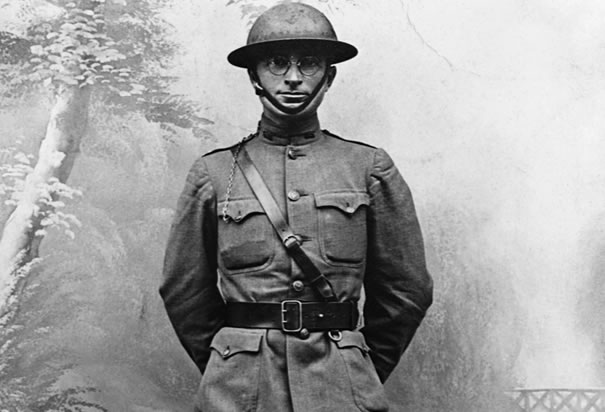Political Biography
President Harry Truman

Harry
S Truman served as the 33rd President of the United States
from 1945 to 1953. He was a U.S. Senator representing Missouri when
called upon by President Franklin D. Roosevelt to replace incumbent
Vice-President Henry Wallace on the ticket as his running mate.
Roosevelt and Truman won the 1944 Presidential Election, and
Truman served as Vice-President a little over three months before
becoming President upon the death of Roosevelt,
Truman’s time as President is one of
the most significant eras in American history.
He served as President during the last five months of World
War Two, and he had to make the decision on how to use the new atomic
bombs (that he did not even know about until after becoming
President). He presided
over the start of the Cold War with the Soviet Union, and he decided dto
support South Korea in repelling the invasion by Communist North
Korea.
A partial list of significant decisions
and actions by Truman as President include:
he decision to drop
atomic bombs on the Japanese cities of Hiroshima and Nagasaki (1945).
Presiding over the
birth of the United Nations (1945).
The Marshall Plan,
which provided much needed economic aid to war-torn Europe.
The decision to
provide significant military aid to Greece in the Greek Civil War
against Communist insurgents. This was part of the Truman
Doctrine of containing the spread of Soviet and Communist influence
around the world.
The Berlin Airlift (1948). The first major showdown
between the U.S. and the Allied nations with the Soviet Union in the
Cold War.
Put into effect Executive
Order 9981, in July 1948, desegregating
and requiring equal opportunity in the Armed Forces. Prior to this,
African-American troops served in segregated units.
Executive Order 9981 integrated the military and provided the
opportunity for non-white members of the military to be promoted and
have the same opportunities and rights as white troops.
The establishment of
the North Atlantic Treaty Organization (NATO) with Canada and the
European democracies to aid each other in countering the Soviet
Union. Truman appointed
General Dwight Eisenhower as the first NATO commander.
Truman sent U.S.
troops to intervene in the Korean War in 1950 after South Korea was
invaded by North Korea (with assistance from the Soviet Union and
Communist China).
Truman survived an
assassination attempt on November 1, 1950, by two Puerto Rican
nationalists.
Political,
Personal, and Career Information on Harry Truman
The Wars of Harry Truman:
Wars
Harry Truman Took Part In as a Soldier:
World War
One (1917-1918)
American Wars and Conflicts of Harry Truman as
Commander in Chief:
World
War Two (1941-1945)-Truman was President during the last 5
months of the war.
The
Cold War
Berlin Airlift (1948)
The
Korean War (1950-1953)
Personal Information on Harry Truman
Parents:
John Anderson Truman
(1851–1914) - Father
Martha Ellen Young Truman
(1852–1947)- Mother
Siblings:
John
Vivian Truman (1886-1965)-Brother
Mary Jane Truman (1889-1978) -Sister
Spouse:
Bess Wallace (M. 1919)

Children:
Mary
Margaret Truman (1924-2008) -Daughter
Religion:
Presbyterian
Education:
1901:
Graduated from Independence High School
1901: Attended Spalding's
Commercial College for one semester
1923–25: Took night
courses toward a law degree at the Kansas City Law School. Did not
graduate
* NOTE: Truman was the last
President who did not graduate from college.
Career/Occupation:
Farmer
Haberdasher/Businessman
Military Service:
1905-1911: Missouri Army
National Guard
1917-1919: Missouri Army
National Guard/U.S. Army during World War One. Truman saw combat in
France in command of an artillery battery. Entering the war as a
Lieutenant, he was later promoted to Captain.
1920-1953: Officers’ Reserve Corps. Truman
remained an officer in the Field Artillery Reserve until he retired
with the rank of Colonel on January 31, 1953.

Political Career:
Party
Affiliation: Democrat
1900:
Page at the 1900 Democratic National Convention in Kansas
City (his father was active in local Democratic politics and got
Harry the Page job)
1922:
Ran
for County Judge position (won)
1922-1924:
County Court judge of Jackson County
1924:
Ran
for re-election as County Judge position (lost)
1926-1935: Presiding Judge of Jackson County, Missouri
1933:
Appointed as Director of the Federal
Re-Employment program (part of the Civil Works Administration) in
Missouri.
1934:
Ran for U.S. Senator from Missouri.
1934 Democratic Primary
Election: Defeated two incumbent Democratic Congressmen (John J.
Cochran and Jacob L. Milligan).
1934 General Election:
Defeated the incumbent Republican Senator Roscoe C. Patterson.
1935-1945:
U.S. Senator from Missouri
1944:
Ran for Vice-President as the Running Mate to incumbent President
Franklin D. Roosevelt
1945 (April 12): Becomes President
upon the death of Franklin Roosevelt
1945-1953: President of the
United States
1948: Defeated Thomas Dewey (R) in the Presidential
Election
1952: Democratic Primary
for the Presidency--While not really wanting to run for a second full
term, Truman had tried to recruit potentially strong candidates to
run for the Democratic nomination. All of his favored candidates
either declined to run, or, in the case of General Eisenhower, chose
to run as a Republican. Truman
allowed his supporters to enter his name in the New Hampshire
Primary, only to lose badly to Senator
Estes Kefauver, a candidate who Truman despised. Eighteen days after
the New Hampshire Primary, Truman announced he would not be a
candidate for re-election. He eventually convinced
Governor Adlai Stevenson to run.
Post Presidency Facts About
Harry Truman:
After
leaving the Presidency, Truman declined to profit from his position
by serving on corporate boards or endorsing products.
He felt that to do so would be demeaning to the office of the
presidency. His only
pension was from his army service. Due in part to Truman’s
financial situation, Congress passed the Former President’s Act,
which provided a $25,000 dollar yearly pension to former presidents.
Truman
raised private funds to build the Truman Presidential Library, and
then donated it to the Federal government.
This began the tradition of establishing Presidential
Libraries. Truman was
instrumental in passage of a bill in Congress (he testified before
Congress on this issue), appropriating funds for future Presidential
Libraries.
Harry
and Bess Truman were issued the first two Medicare cards at the
signing ceremony by President Lyndon Johnson at the Truman
Presidential Library in 1965. Johnson
did this to honor the Truman’s fight for government health care
while during his presidency.